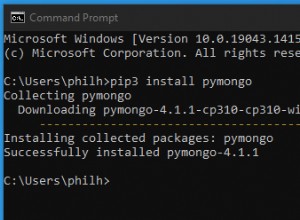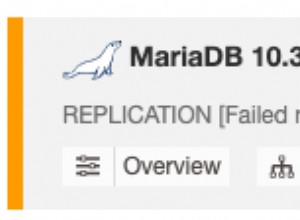Você executou este código no irb, certo? A exceção que você está recebendo não está sendo gerada pelo
Redis.new . Ele está sendo gerado pelo inspect método, que o irb chama para mostrar o valor da expressão que você acabou de digitar. Basta olhar para o rastreamento de pilha (encurtei os caminhos para torná-lo legível):
ruby-1.8.7-p330 :009 > Redis.new(:host => "google.com")
Timeout::Error: time's up!
from /.../SystemTimer-1.2.3/lib/system_timer/concurrent_timer_pool.rb:63:in `trigger_next_expired_timer_at'
from /.../SystemTimer-1.2.3/lib/system_timer/concurrent_timer_pool.rb:68:in `trigger_next_expired_timer'
from /.../SystemTimer-1.2.3/lib/system_timer.rb:85:in `install_ruby_sigalrm_handler'
from /..../lib/ruby/1.8/monitor.rb:242:in `synchronize'
from /.../SystemTimer-1.2.3/lib/system_timer.rb:83:in `install_ruby_sigalrm_handler'
from /.../redis-2.2.2/lib/redis/connection/ruby.rb:26:in `call'
from /.../redis-2.2.2/lib/redis/connection/ruby.rb:26:in `initialize'
from /.../redis-2.2.2/lib/redis/connection/ruby.rb:26:in `new'
from /.../redis-2.2.2/lib/redis/connection/ruby.rb:26:in `connect'
from /.../SystemTimer-1.2.3/lib/system_timer.rb:60:in `timeout_after'
from /.../redis-2.2.2/lib/redis/connection/ruby.rb:115:in `with_timeout'
from /.../redis-2.2.2/lib/redis/connection/ruby.rb:25:in `connect'
from /.../redis-2.2.2/lib/redis/client.rb:227:in `establish_connection'
from /.../redis-2.2.2/lib/redis/client.rb:23:in `connect'
from /.../redis-2.2.2/lib/redis/client.rb:247:in `ensure_connected'
from /.../redis-2.2.2/lib/redis/client.rb:137:in `process'
... 2 levels...
from /.../redis-2.2.2/lib/redis/client.rb:46:in `call'
from /.../redis-2.2.2/lib/redis.rb:90:in `info'
from /..../lib/ruby/1.8/monitor.rb:242:in `synchronize'
from /.../redis-2.2.2/lib/redis.rb:89:in `info'
from /.../redis-2.2.2/lib/redis.rb:1075:in `inspect'
from /..../lib/ruby/1.8/monitor.rb:242:in `synchronize'
from /.../redis-2.2.2/lib/redis.rb:1074:in `inspect'
from /..../lib/ruby/1.8/irb.rb:310:in `output_value'
from /..../lib/ruby/1.8/irb.rb:159:in `eval_input'
from /..../lib/ruby/1.8/irb.rb:271:in `signal_status'
from /..../lib/ruby/1.8/irb.rb:155:in `eval_input'
from /..../lib/ruby/1.8/irb.rb:154:in `eval_input'
from /..../lib/ruby/1.8/irb.rb:71:in `start'
from /..../lib/ruby/1.8/irb.rb:70:in `catch'
from /..../lib/ruby/1.8/irb.rb:70:in `start'
from /..../bin/irb:17
Como você pode ver acima, a exceção ocorre dentro de
inspect , não Redis.new . Quando você chama inspect em um objeto Redis, em vez de apenas imprimir seu estado, ele faz muitas coisas. Nesse caso, inspect tenta se conectar ao servidor e lança uma exceção quando expira. Isso parece um design muito ruim para mim e talvez devêssemos enviar um relatório de bug para os mantenedores da gem Redis. Isso leva a um comportamento interessante no IRB:
- Digitando
Redis.new(:host => "google.com")resulta em uma exceção como mostrado acima - Digitando
Redis.new(:host => "google.com"); 'hello'resulta em '=> "hello"'
Se você quiser capturar essa exceção, tente chamar
ensure_connected dentro do seu bloco de início/resgate/fim. 



